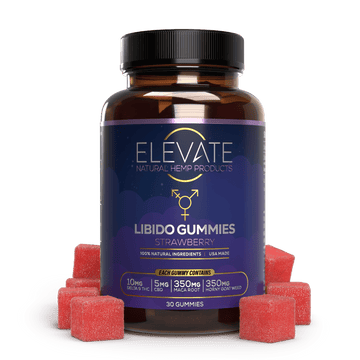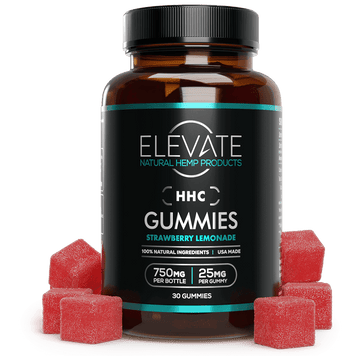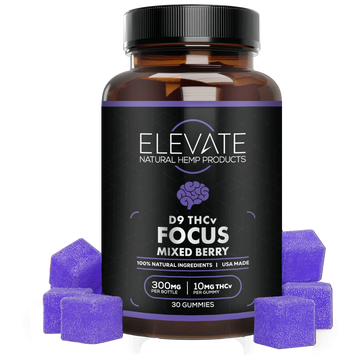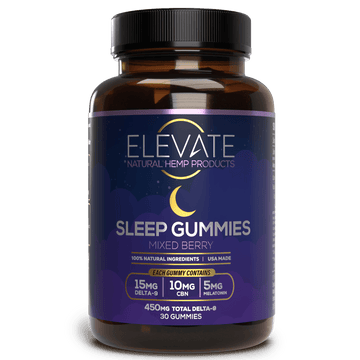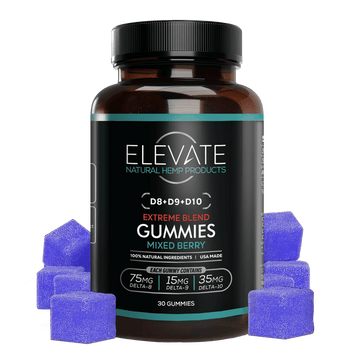Is Delta 8 Safe? What You Need to Know First

Is Delta 8 Safe:
Delta 8 is generally considered safe for healthy adults when purchased from reputable sources. Risks include unregulated products containing contaminants. Always verify third-party lab testing. Side effects are similar to Delta 9 but typically milder. Don't use if pregnant.
Table of Contents
- Key Takeaways:
- What Is Delta 8 THC And How Does It Work?
- Is Delta 8 Safe? What Consumers Should Know First
- Comparing Delta 8 And Delta 9: Which Is Safer?
- Delta 8 Side Effects: What Users Should Watch For
- Who Should And Shouldn't Use Delta 8 THC?
- What The Law Says About Safe Delta 8 In Your State
- Smart Buying Tips: Choose Safe, Lab-Tested Delta 8
- Final Thoughts
- Frequently Asked Questions About Delta 8 Safety Guide
- Related Articles
You've probably heard Delta 8 described as "diet weed" or "THC-lite"—a gentler way to experience relaxation without the anxiety that can come with Delta 9. While it’s true that Delta 8 offers a milder high, that doesn't automatically answer the most important question: is Delta 8 safe? The reality is, the market is unregulated, and quality varies wildly. To truly get the benefits you're looking for, you need to know what separates a high-quality product from a risky one. We'll walk you through exactly what to look for.
Key Takeaways:
- Is Delta 8 Safe? Know Before You Buy: Delta 8 is considered safe when sourced from reputable brands that provide third-party lab testing. Always verify Certificates of Analysis (COAs) before purchasing.
- Delta 8 vs. Delta 9–A Gentler Experience: Delta 8 delivers milder psychoactive effects than Delta 9 THC, making it ideal for users seeking relaxation without intense highs or anxiety.
- Smart Shopping = Safe Use: Safety begins with smart buying: choose organically grown hemp, transparent ingredient lists, and companies that prioritize consumer education and product quality.
Delta 8 has exploded in popularity, showing up everywhere from online wellness shops to gas station shelves. Maybe a friend swears by it for sleep, or you’ve seen influencers touting it as a “chill” alternative to traditional THC, but before you try it for yourself, one question stands out: Is Delta 8 actually safe?
In this guide, we’ll break down what Delta 8 does in your body, the risks and red flags to look out for, and how brands like Elevate help you make confident, informed choices. Because when it comes to your wellness, cutting corners isn’t an option—and you deserve the facts before you take that first gummy.
What Is Delta 8 THC And How Does It Work?
Delta 8 THC, or Delta 8-tetrahydrocannabinol, is a naturally occurring cannabinoid found in hemp and cannabis plants. It’s structurally similar to the more well-known Delta 9 THC, which is responsible for the classic psychoactive effects of cannabis. However, Delta 8 introduces some important differences in how it interacts with the body and what users experience.
The Endocannabinoid System And Delta 8
Both Delta 8 and Delta 9 THC interact with the body’s endocannabinoid system (ECS), a complex signaling network regulating mood, appetite, pain, and sleep. Delta 8 specifically targets the CB1 receptors located in the central nervous system, but with slightly less potency than Delta 9. This more moderate affinity for the CB1 receptors is believed to account for Delta 8’s reputation as a smoother, more balanced cannabinoid.
Reported Effects And Potential Benefits
Many adults describe Delta 8 as providing gentle euphoria, enhanced relaxation, and subtle mood elevation. Some also note reduced discomfort and relief from everyday stresses, which is why it has become a popular option for those seeking wellness support without the overwhelming effects often linked to traditional THC.
Is Delta 8 Safe? What Consumers Should Know First
As Delta 8 THC grows in popularity among wellness-focused adults, safety is a top priority. Understanding its risks and benefits means looking at how it's made, tested, and used. Here's what to know before trying Delta 8.
Source And Purity Matter
Delta 8 occurs naturally in hemp but in tiny amounts. Most products are made by converting CBD from hemp. The safety of these products depends on clean extraction methods and the absence of harmful solvents or chemicals.
Dangers From The Unregulated Manufacturing Process
The biggest safety concern with Delta 8 stems from its unregulated manufacturing process. Because the FDA doesn't oversee these products, there's no one ensuring they are pure, potent, or free from contaminants. The chemical process used to convert CBD into Delta 8 can be complex, and if done improperly, it can leave behind unwanted chemicals. The FDA has warned that some manufacturers may use unsafe household chemicals, resulting in final products containing harmful by-products, heavy metals, or pesticides. This is why you can't just trust a QR code on the package; without federal oversight, these reports can be faked. Your best defense is to choose brands that are transparent about their sourcing and provide comprehensive, third-party lab results for every batch.
Lab Testing Is Non-Negotiable
Trusted brands provide third-party lab reports (COAs) that confirm potency and screen for contaminants like heavy metals and pesticides. Always check lab results before buying.
FDA Warnings and Reported Adverse Events
Health Incidents and Poison Control Data
It’s important to know that the FDA has raised some serious flags about the Delta 8 market. Because these products aren't federally regulated, the agency hasn't approved them for safe use, which has led to some concerning safety reports. For instance, between late 2020 and early 2022, the FDA received over 100 reports of adverse reactions, while national poison control centers handled thousands of cases related to Delta 8 exposure, many involving children. The primary concern isn't necessarily Delta 8 itself, but the unregulated manufacturing processes that can introduce harmful chemicals and contaminants. This is why you have to be your own advocate and choose transparent brands that provide comprehensive lab testing, which is critical for your safety and peace of mind.
Start Low, Go Slow
Effects vary by person. Though milder than Delta 9, Delta 8 can still cause dizziness or dry mouth. New users should begin with low doses and adjust slowly.
Use Responsibly
Delta 8 isn’t for everyone. Avoid use if pregnant, nursing, or managing certain health conditions without medical advice. Ask about sourcing and ingredients to ensure it aligns with your wellness goals.
Comparing Delta 8 And Delta 9: Which Is Safer?
Delta 8 and Delta 9 are both THC compounds, but they differ in potency, effects, and how they’re regulated—factors that directly impact safety.
Delta 8 Offers A Milder High
Delta 9 is more potent and often causes stronger psychoactive effects, which can lead to anxiety or paranoia. Delta 8 delivers a gentler, more manageable experience for most users.
Fewer Side Effects With Delta 8
Delta 8 is less likely to cause common THC side effects like anxiety, rapid heartbeat, or confusion, making it a potentially safer option for beginners or sensitive users.
Delta 9 Is More Regulated
Delta 9 is sold through licensed dispensaries in legal states and often comes with strict testing requirements. Delta 8, while federally legal, is less regulated, so quality can vary.
Safety Depends On Quality
Delta 8 is generally safer when purchased from reputable brands with third-party lab testing. Poorly made products can contain harmful contaminants.
Delta 8 Side Effects: What Users Should Watch For
Delta 8 THC is celebrated for its milder psychoactive effects compared to traditional Delta 9 THC, but like any hemp-derived supplement, it’s vital to be informed about possible side effects. Understanding these effects is essential for anyone considering Delta 8 as part of their wellness routine.
Common Side Effects
Most users report that Delta 8 is generally well tolerated, particularly due to its gentle nature. However, some may experience:
- Dry mouth (cottonmouth): A familiar sensation for users of cannabinoids, staying hydrated can help alleviate this discomfort.
- Red or irritated eyes: This is usually temporary and mild.
- Mild drowsiness or fatigue: Particularly at higher doses, some users report feeling relaxed or slightly sleepy.
- Temporary changes in mood: Depending on the individual and dosage, mild feelings of euphoria or anxiety may occur.
- Altered coordination and reaction time: Less intense than with Delta 9 THC, but still noticeable in some cases.
Less Common And Individual Reactions
While rare, some users may experience effects that require more caution, including:
- Dizziness or lightheadedness: Sometimes stemming from new users taking too high a dose.
- Headaches or mild nausea: These symptoms may occur if the product is not compatible with your body chemistry or if it interacts with other supplements or medications.
Potential for Dependence and Long-Term Risks
When considering any new supplement, it's smart to think about the long-term picture. With Delta 8, the conversation around dependence is important. Because it's so chemically similar to Delta 9 THC, experts suggest that Delta 8 likely carries similar risks of dependence and addiction. This is a key reason why responsible use is so critical. The bigger issue, however, stems from the lack of regulation in the market. The FDA has not approved any Delta 8 products for safe use, meaning many products on shelves haven't been vetted for safety or effectiveness. This unregulated environment can lead to products containing harmful chemicals or contaminants, posing health risks that go beyond the cannabinoid itself. Choosing a transparent brand that prioritizes safety and testing is the best way to mitigate these risks.
Sensible Usage For Wellness
To minimize adverse effects, responsible use is key. Start with a low dosage, monitor your body’s response, and avoid operating heavy machinery or driving while the effects are present. Listening to your body and adjusting accordingly helps maximize benefits and uphold personal safety.
Who Should And Shouldn't Use Delta 8 THC?
Delta 8 THC has gained attention as a milder, hemp-derived cannabinoid offering many users a sense of calm, mild euphoria, and support for everyday wellness. However, responsible use means understanding who may benefit from Delta 8 and who should avoid it to ensure personal safety.
Ideal Candidates For Delta 8 THC
- Wellness-Focused Adults: Delta 8 THC may be suitable for adults seeking gentle relief and relaxation, without the pronounced psychoactive effects or potential anxiety sometimes associated with traditional THC. Individuals interested in natural approaches for managing stress, supporting sleep, or encouraging a sense of calm often find Delta 8 appealing.
- Experienced Cannabis Users: Those familiar with other hemp or cannabis products may appreciate Delta 8's subtler effects. If you’ve used CBD or Delta 9 THC before and are comfortable with cannabinoids, Delta 8 may serve as a welcome addition to your wellness routine.
- Those Sensitive to Delta 9 THC: If traditional THC products tend to make you feel too intense or anxious, Delta 8 can offer a smoother, more approachable experience while still delivering potential benefits like mild euphoria and stress reduction.
Who Should Avoid Delta 8 THC
- Pregnant or Breastfeeding Individuals: Out of an abundance of caution and due to limited research on cannabinoid effects in pregnancy and nursing, it’s recommended that pregnant or breastfeeding people abstain from Delta 8 THC.
- Minors: Delta 8 THC products are intended strictly for adults. They are not appropriate for anyone under the legal age set by state or local regulations.
- Those with Certain Medical Conditions: Individuals with specific health conditions—especially those affecting the heart, liver, or psychiatric health—should consult with a qualified healthcare provider before considering Delta 8 THC.
- Individuals Subject to Drug Testing: Delta 8 metabolites can trigger positive results on drug tests designed for THC. If you are subject to workplace drug screenings or legal oversight, Delta 8 use can pose risks.
- Those Taking Specific Medications: Delta 8, like other cannabinoids, may interact with some medications. If you are currently prescribed medication, particularly those metabolized by the liver, consult your healthcare professional before use.
What The Law Says About Safe Delta 8 In Your State
Delta 8 THC exists in a complex legal landscape, and understanding these regulations is a critical part of ensuring safe use. Laws can differ significantly from state to state, and changes occur frequently as lawmakers reassess their approach to hemp-derived cannabinoids.
While federal legislation provides a frame of reference, state-level regulations often set the definitive standard for what’s allowed in your area. Here’s what you need to know about safe Delta 8 products.
Federal Guidelines On Delta 8 THC
The 2018 Farm Bill legalized hemp derivatives containing less than 0.3% Delta 9 THC by dry weight, which paved the way for the rise of Delta 8. However, the federal government has not issued specific safety standards for Delta 8, leaving room for interpretation and state oversight. The Food and Drug Administration (FDA) has flagged concerns about mislabeled products and possible contaminants, but has not banned Delta 8 outright.
The 2018 Farm Bill Loophole
The 2018 Farm Bill was a game-changer for hemp, but it inadvertently created the market for Delta 8. The law legalized hemp and its derivatives as long as they contain less than 0.3% Delta 9 THC by dry weight. However, the legislation focused so narrowly on Delta 9 that it didn't account for other psychoactive cannabinoids. This oversight created a legal loophole, allowing products made from hemp-derived Delta 8 to be sold in many places where traditional cannabis is still restricted. This legal gray area is why the quality of Delta 8 products can vary so dramatically. Without federal standards for production or purity, the responsibility shifts to consumers to find trustworthy brands that prioritize safety through transparent, third-party lab testing.
State-by-State Differences
States hold the power to regulate or ban Delta 8 THC products within their boundaries. Some have fully embraced hemp-derived cannabinoids, while others have restricted or prohibited their sale and use. It’s crucial to check your state’s current laws before purchasing:
- Permissive States: States like Florida and Texas allow retail sales and online shipments of Delta 8, provided the products meet federal hemp standards.
- Restricted States: States including New York and Colorado have imposed bans or major restrictions on Delta 8 products, citing safety concerns or ambiguities in the law.
- Evolving States: In some areas, such as Michigan and Kentucky, legislation regulating Delta 8 is still being developed, which can create uncertainty for consumers and sellers alike.
How To Stay Informed
Delta 8 laws can change quickly as regulators respond to safety data and consumer trends. The best way to ensure you’re using Delta 8 safely—and legally—is to verify the most recent laws in your state, consult local health departments or regulatory agencies, and confirm that products are lab-tested and clearly labeled.
Staying informed empowers you to make confident, responsible choices as you explore wellness options with hemp-derived cannabinoids.
Smart Buying Tips: Choose Safe, Lab-Tested Delta 8
Navigating the Delta 8 market requires a discerning eye for quality and transparency. With the growing popularity of hemp-derived cannabinoids, prioritizing safety is crucial for anyone seeking wellness-oriented products. Here’s how to confidently choose Delta 8 that aligns with your health and peace of mind.
Check For Third-Party Lab Results
Always request or search for third-party lab reports, also known as Certificates of Analysis (COAs), before making a purchase. These documents verify product potency, confirm the absence of harmful contaminants (like heavy metals, pesticides, and residual solvents), and ensure the Delta 8 content matches the advertised amount. Lab results should be recent, thorough, and easy for customers to access—often available via QR codes or website links.
Beware of Misleading Marketing and Labeling
The Delta 8 market can feel a bit like the Wild West, and it’s crucial to be a savvy shopper. Because the FDA has not approved any Delta 8 THC products for safe use, the responsibility to verify quality falls directly on the consumer. Be cautious of vague or misleading labels; some brands market their products simply as "hemp products" to downplay their psychoactive nature. It’s also important to remember that most Delta 8 is chemically converted from CBD, and without proper manufacturing, harmful by-products can remain. Steer clear of companies making unproven medical claims and instead choose brands that prioritize transparency and provide comprehensive lab reports. Your safety depends on it.
Prioritize Organically Grown Hemp
Delta 8 safety starts with premium, pesticide-free hemp. Seek out products derived from organically grown, U.S.-sourced hemp. Organically cultivated plants are less likely to contain unwanted chemicals or toxins, promoting a cleaner end product and supporting your overall wellness goals.
Review Ingredients And Product Transparency
Examine ingredient lists for artificial fillers or unnecessary additives. Simplicity and clarity are key: quality Delta 8 products feature natural ingredients and transparent labeling. Manufacturers serious about safety will openly share detailed information about how their products are made, from extraction methods to ingredient sourcing.
Assess Company Policies And Customer Support
Reliable companies stand behind their products and offer clear return policies, accessible customer support, and educational resources for responsible use. Check if a brand provides a satisfaction guarantee or money-back option. Responsive customer service and a commitment to consumer education signal a genuine focus on safety and long-term wellness.
Final Thoughts
Delta 8 THC offers a compelling middle ground between the therapeutic calm of CBD and the more intense effects of Delta 9 THC. However, like any wellness product, its benefits are best enjoyed when used responsibly and with full awareness of potential risks. From understanding its effects on your body to navigating the legal landscape and choosing products wisely, education is your strongest ally. Whether you're a seasoned cannabinoid user or exploring Delta 8 for the first time, prioritizing lab-tested products, safe dosages, and transparent brands will empower you to make informed, confident decisions for your health and peace of mind.
Read also:
- Can You Fly With THC Gummies: What The Law Actually Says
- Is Delta 8 Legal In Florida? Here’s What You Need To Know In 2025
- Is Delta 8 Legal In Texas? The Latest Legal Update
Frequently Asked Questions About Delta 8 Safety Guide
Can you overdose on Delta 8?
While Delta 8 THC is considered to have a low risk of severe overdose, consuming excessive amounts can lead to uncomfortable side effects like drowsiness, confusion, or anxiety. Responsible usage is key—always follow serving recommendations and start with a low dose, especially if you are new to Delta 8.
How do you use Delta 8 safely?
To ensure safe and enjoyable use, begin with the lowest recommended dose and monitor your body’s response. Use only lab-tested products from transparent, reputable brands like Elevate. Avoid mixing Delta 8 with alcohol or other substances, and do not operate machinery or drive while under its influence. Always store your products securely, away from children and pets.
Can Delta 8 THC show up on a drug test?
Yes, Delta 8 THC can result in a positive drug test, as most standard tests screen for THC metabolites and cannot differentiate between Delta 8 and Delta 9 THC. If you are subject to drug testing for work or legal reasons, consult your employer or testing authority before using Delta 8 products.
What should you look for on Delta 8 product labels?
Look for clear labeling that specifies the amount of Delta 8 THC per serving, a full list of ingredients, batch number, and a QR code or web link to lab test results (COAs). Elevate ensures every product label reflects our commitment to quality and transparency—each product is lab-tested for potency, purity, and safety so you know exactly what you’re consuming.
Can Delta 8 interact with medications?
Delta 8 THC can potentially interact with certain medications, especially those that affect the central nervous system or are metabolized by the liver. Consult your healthcare provider before using Delta 8 if you are taking prescription or over-the-counter medications, or if you have any pre-existing health conditions.
How much Delta 8 should a beginner use?
If you’re new to Delta 8 THC, start with a conservative dose—typically 5–10 mg—to gauge how your body reacts. Effects may take up to an hour or more to appear, so allow time before considering another dose.
Related Articles
Join Our Newsletter
Sign up to be the first to know about our can't-miss product drops, special VIP offers & exclusive discounts.

